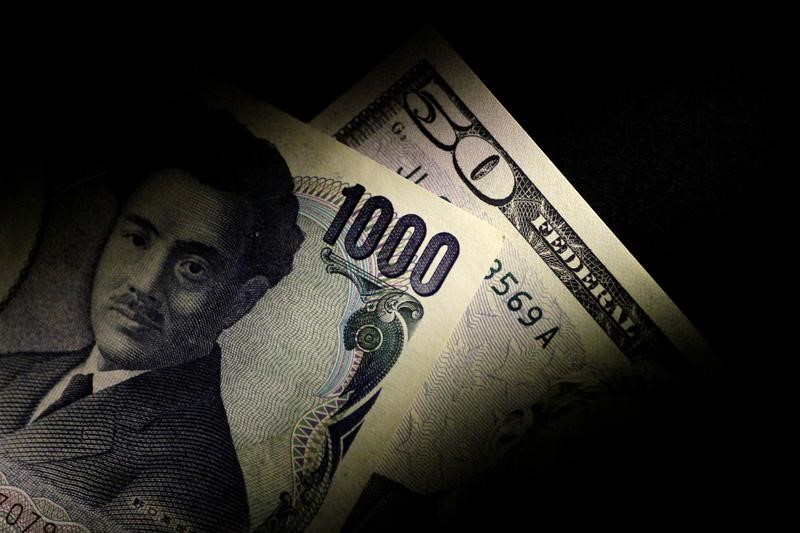JFrog stock rises as Cantor Fitzgerald maintains Overweight rating after strong Q2
Investing.com - The Japanese yen has seen some volatile trading this week, raising speculation that the country’s authorities have intervened to try and stem its seemingly relentless decline. Here’s how we can confirm the intervention.
At 11:15 ET (15:15 GMT), the USD/JPY pair traded 0.7% higher at ¥157.37, after climbing as high as ¥160.245 on Monday, before reversing sharply.
The sharp move lower in the pair, equating to yen buying, promoted speculation that Japanese authorities had finally decided that the yen selling had gone too far and moved to support the beleaguered currency.
A weak yen increases the cost of imports, and Japan is heavily reliant on imports for both energy supplies and food, meaning inflation could rise.
The yen has been falling for years as global interest rates have shot up in response to resurgent inflation while Japan's have stayed near zero.
That gap has driven money out of yen and into other better-yielding currencies and even in March, when Japan hiked rates for the first time since 2007, the yen still fell.
Fading expectations of rate cuts in the United States have also helped push down the yen, which has lost more than a third of its value on the dollar since early 2021, prompting Japan intervention in late 2022.
Top currency diplomat Masato Kanda declined to say whether the Ministry of Finance (MoF) was behind the sharp move higher in the yen, but he did say that Japan stands ready to deal with foreign exchange matters around the clock.
However, central bank money market projections suggested that its spending may have been close to the daily record ¥5.62 trillion - nearly $36 billion at current exchange rates - when Japan intervened in October 2022.
This can be confirmed in early May when the MoF will disclose the composition of its official reserves for end-April - which will show the size of the total reserve assets and the balance of deposits, securities, and other assets.
The MoF will disclose the monthly size of interventions for the Apr 26-May 29 period at the end of May, the Bank of America Securities said, and this is when we will know the exact size of the MoF’s foreign exchange intervention on April 29.
The daily foreign exchange intervention data for the second quarter of 2024 is due in early August.
Still, as the yen’s retreat during Tuesday’s session indicates, the Japanese authorities may have to continue intervening given the global pressure on the yen.
Out of Japan’s $1.3 trillion of foreign reserves, $327 billion are estimated to be parked in deposits and short-dated securities with maturity up to one year, according to BoA’s estimates.
“We think the total size of the MoF’s FX interventions this year would not exceed this number unless the USD/JPY rally extends beyond ¥170,” the bank’s analysts said, in a note dated April 30.
“The MoF would not want to sell longer dated US Treasuries from a perspective of currency diplomacy. It may not want the reserves to decline to below $1 trillion for its psychological impact on the market. However, these are admittedly subjective and arbitrary.”
